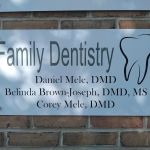Why Special Dental Care Is Essential for Seniors
As we age, our bodies undergo many changes, and our dental health is no exception. I’ve seen firsthand how dental care needs evolve with age—both from personal experience and observing family members. For seniors, maintaining oral health goes beyond just brushing and flossing; it requires tailored care that addresses the unique challenges aging brings. In this article, I’ll share why seniors need special dental care and what steps they can take to ensure their oral health remains in top condition.
1. The Impact of Aging on Oral Health
When my grandmother turned 75, I began noticing that she had more difficulty with her teeth and gums than when she was younger. Her once-straight teeth had shifted, and she started complaining about discomfort while eating. This prompted me to do more research, and I learned that aging can lead to a variety of dental issues that aren’t always addressed with the usual dental routine.
One of the biggest issues seniors face is dry mouth, often caused by medications, reduced saliva production, or certain medical conditions. I remember when my grandmother had to switch to a different medication because the dry mouth was causing problems with speaking and swallowing. This condition increases the risk of cavities and gum disease, as saliva plays a key role in neutralizing acids in the mouth and washing away food particles. Seniors may also experience tooth wear due to natural aging, where enamel thins over time, making teeth more susceptible to decay.
2. Gum Disease and Tooth Loss in Seniors
As we age, the risk of gum disease increases. Gum disease, or periodontal disease, is a major concern for seniors. I learned that many seniors, including my own family members, often struggle with gum disease without realizing it. The symptoms aren’t always painful, so people may not notice them until the damage is done. Gum disease can lead to tooth loss if not properly treated, and seniors are already at a higher risk due to factors like medication side effects, poor diet, and chronic conditions such as diabetes.
During one of my grandmother’s dental check-ups, the dentist informed us that she had early-stage gum disease, which had progressed largely unnoticed. This was a wake-up call for us to be more vigilant about her dental care. Gum disease is preventable with proper oral hygiene, but the reality is that many seniors are at risk. Regular dental check-ups are essential to detect early signs and prevent the need for more invasive treatments down the road.
3. Dentures and Their Special Care
Another significant aspect of dental care for seniors is dealing with dentures. I’ve personally seen how denture-wearers, like my grandfather, can struggle with keeping their dentures clean and comfortable. While dentures are a great solution for replacing missing teeth, they require special care to maintain their function and prevent discomfort or oral health issues.
My grandfather once experienced irritation around his gums due to ill-fitting dentures, which led to sores and increased discomfort. This issue is common among seniors, especially when dentures become worn or don’t fit as they should. It’s important for seniors to have their dentures regularly checked by a dentist, as they may need adjustments over time to avoid issues like gum irritation or difficulty chewing.
4. Tooth Sensitivity in Older Adults
Tooth sensitivity can become more pronounced as we age, and this is something I noticed in my own experiences. Over time, the gums naturally recede, exposing the sensitive roots of the teeth. My mother, for instance, started to experience sharp pain when eating ice cream or drinking hot beverages as she got older. This was due to the loss of enamel and gum recession. Tooth sensitivity is common among seniors, and while it’s usually not serious, it can cause discomfort and impact daily life.
If you or a loved one is experiencing tooth sensitivity, it's important to consult a dentist who can provide solutions, such as special toothpaste or fluoride treatments. Regular dental visits can also help monitor the condition and provide options to manage sensitivity effectively.
5. The Role of Regular Dental Check-Ups for Seniors
For seniors, regular dental check-ups are more important than ever. I’ve learned that many seniors may avoid going to the dentist due to fear, cost, or simply because they think their teeth are fine. However, neglecting dental visits can lead to serious complications, especially as oral health issues in seniors often develop gradually.
Regular dental visits allow dentists to detect problems early, such as cavities, gum disease, or even oral cancer. I’ve seen firsthand how routine check-ups can help prevent larger issues down the line. For seniors with chronic health conditions, dental check-ups become even more important, as there is a direct link between oral health and overall well-being. Conditions like diabetes, heart disease, and arthritis can impact oral health, and a dentist can provide tailored care and guidance on how to maintain good dental hygiene.
6. Special Diet and Oral Health for Seniors
Diet plays a crucial role in maintaining healthy teeth and gums, and it’s something that seniors need to pay close attention to. I’ve noticed that my grandmother, who was always careful about her diet, had fewer dental problems compared to some of her peers. A well-balanced diet rich in calcium, vitamins, and minerals can help strengthen teeth and prevent decay. Seniors should also be mindful of foods and drinks that can stain teeth, cause dry mouth, or contribute to tooth decay, such as sugary snacks, coffee, and alcohol.
Additionally, seniors should be aware of how their diet can affect their dental appliances, like dentures. Eating softer foods and avoiding sticky or hard items can help prolong the life of dentures and reduce the risk of gum irritation.
7. Maintaining a Good Oral Hygiene Routine at Home
Maintaining proper oral hygiene is essential for seniors, and it often requires more effort than simply brushing twice a day. I’ve seen that many seniors, especially those with arthritis or limited mobility, can struggle with brushing and flossing effectively. In these cases, electric toothbrushes and specialized flossing tools can be a big help. My own father uses an electric toothbrush, which makes it easier for him to maintain his oral hygiene routine despite having limited dexterity in his hands.
Another important step is to use fluoride toothpaste and rinse with an antimicrobial mouthwash to help prevent cavities and gum disease. Seniors should also be sure to brush their tongue, as bacteria can accumulate there, contributing to bad breath and oral infections. Encouraging good habits and providing the right tools can make a significant difference in a senior’s dental health.







 Matthew J. Walters DDS0.0 (0 review)
Matthew J. Walters DDS0.0 (0 review) Hometown Family Dental4.0 (133 review)
Hometown Family Dental4.0 (133 review) Mele Family Dentistry4.0 (21 review)
Mele Family Dentistry4.0 (21 review) Krouth Dental4.0 (25 review)
Krouth Dental4.0 (25 review) Central Park Dental Aesthetics4.0 (129 review)
Central Park Dental Aesthetics4.0 (129 review) Orangecrest Dental Group4.0 (54 review)
Orangecrest Dental Group4.0 (54 review) The Importance of Oral Health Education During Pregnancy for a Healthy Pregnancy
The Importance of Oral Health Education During Pregnancy for a Healthy Pregnancy Best Tips for Brushing Your Teeth Properly for Healthy Gums: Essential Techniques for Oral Health
Best Tips for Brushing Your Teeth Properly for Healthy Gums: Essential Techniques for Oral Health Why Skipping Dental Checkups Can Lead to Bigger Oral Health Problems
Why Skipping Dental Checkups Can Lead to Bigger Oral Health Problems Advantages of Porcelain Dental Restorations
Advantages of Porcelain Dental Restorations How Can Diabetes Cause Tooth and Gum Problems? Preventing and Managing Oral Health Issues
How Can Diabetes Cause Tooth and Gum Problems? Preventing and Managing Oral Health Issues Healthy Habits for Promoting Good Oral Health and Hygiene: Tips for a Healthy Smile
Healthy Habits for Promoting Good Oral Health and Hygiene: Tips for a Healthy Smile